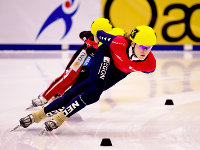 Yesterday a trio of Dutch skaters swept the podium at the 2014 Winter Olympics. They were the third trio of Dutch skaters to do so these Olympic Games.
Yesterday a trio of Dutch skaters swept the podium at the 2014 Winter Olympics. They were the third trio of Dutch skaters to do so these Olympic Games.
The 17 medals won by the Dutch team, including 5 gold ones, has led to a sense of euphoria among the press. Hosts of the evening talk show by public broadcaster NOS, Studio Sportwinter, started speculating on air how many more medals ‘we’ would rake in during the rest of the games. Of the 17 medals, 16 were won in long track speed skating.
What makes these numbers even more interesting is that yesterday’s 1500 metre long track speed skating winner Jorien ter Horst comes from another discipline, short track speed skating. She said after the race that she would trade in her gold for “success in a short track event”.
Ter Horst’s statement, echoed by her coach Jeroen Otter, caused friction in the long track camp. Gerard Kemkers called the statements “incomprehensible”. Rintje Ritsma said Otter “must be a bit loopy”. Gianni Romme thought Ter Mors was being irresponsible: “how painful must her statement be for Koen Verweij?” Verweij is a skater who missed a first place by 0.003 seconds last week.
Ter Horst was asked to explain herself in Studio Sportwinter, where she said: “I’ve been competing in short track for ten years, that is the discipline I’ve put all my passion and effort into. Long track has only been part of my life for the past two years.”
The comments of former medallists Kemkers, Ritsma and Romme reflect the Dutch sense of long track speed skating owning the Olympics. Dutch competitors in other disciplines are viewed as odd-ball outsiders. When one of these outsiders participates in the only ‘real’ discipline, they should apparently do so while showing the proper deference. Perhaps the long track skaters should wonder how it is that somebody who considers their discipline somewhat of a distraction is still able to beat all the other competitors at their own game.
In the meantime Ter Mors has gone into damage control mode. She toned down her message on Twitter: “Olympic gold, a remarkable feeling. I would not trade it for anything in the world.” (She used a clever ironic pun that I don’t know how to translate into English. She said “[ik] zou hem voor geen goud willen missen”, which literally means “[I] would not trade it for gold.”)
(Photo by Emiel Ketelaar, some rights reserved)
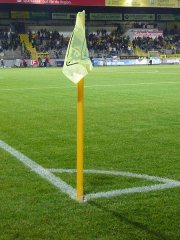

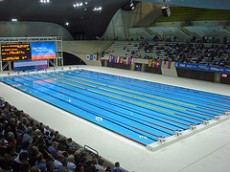
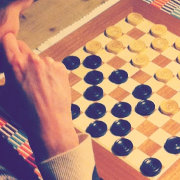 Last week Nina Hoekman became a record-equalling 11-time Dutch draughts champion.
Last week Nina Hoekman became a record-equalling 11-time Dutch draughts champion.  Yesterday a trio of Dutch skaters swept the podium at the 2014 Winter Olympics. They were the third trio of Dutch skaters to do so these Olympic Games.
Yesterday a trio of Dutch skaters swept the podium at the 2014 Winter Olympics. They were the third trio of Dutch skaters to do so these Olympic Games. On Sunday 17 November the 30th edition of
On Sunday 17 November the 30th edition of 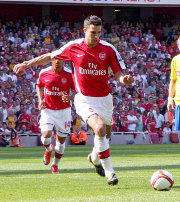 By scoring a hat trick yesterday in a match against Hungary, Robin van Persie became the all-time top scorer of the Dutch national football team. His total is now 41 goals in 80 matches,
By scoring a hat trick yesterday in a match against Hungary, Robin van Persie became the all-time top scorer of the Dutch national football team. His total is now 41 goals in 80 matches, 

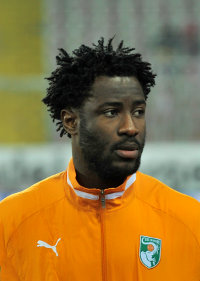 This year Dutch football clubs are getting at least 91 million euro for breaking up contracts with players who are set to move to foreign clubs,
This year Dutch football clubs are getting at least 91 million euro for breaking up contracts with players who are set to move to foreign clubs, 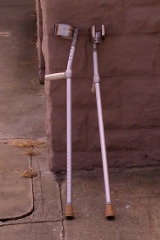 Yesterday the town of Westerlo in the Belgian province of Antwerp was the stage of the first-ever football match between the representative disabled teams of the Netherlands and the host country.
Yesterday the town of Westerlo in the Belgian province of Antwerp was the stage of the first-ever football match between the representative disabled teams of the Netherlands and the host country.